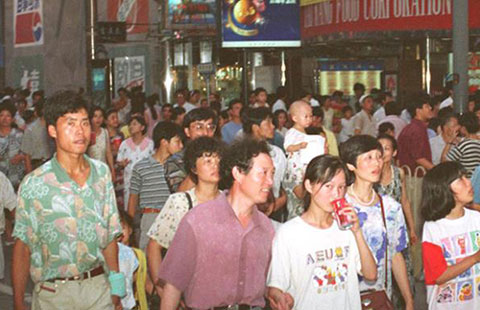Businessmen call on EU to treat China as a market economy
The Chinese business community has called on the European Union to eliminate trade barriers against mainland companies-and to fully recognize its international commitments under the World Trade Organization, a senior trade official said.
"In order to maintain the two parties' healthy economic and trade relations, we hope that the European Union will uphold WTO principles and recognize its international commitments," said Wang Jinzhen, vice-chairman of the China Council for the Promotion of International Trade, at a seminar.
"The two parties can see growth in two-way trade and investment, as long as they further deepen cooperation and uphold the principle of free trade."
According to Wang, Chinese business people regret that the European Union has not dropped its "surrogate country" approach-a way that some countries use to calculate the normal value of export products from "non-market economies" like China. Under this procedure, EU officials ask whether the cost of production in a third country is below the price charged by Chinese exporters and, if so, place tariffs on the Chinese products.
Although the European Commission said in a proposal in early November that, for the purpose of anti-dumping investigations, it will no longer automatically assume that China is a "non-market economy," it has, however, introduced a similar concept called "market distortion" to define China's status.
Christian Ewert, director general of the EU-based Foreign Trade Association, said: "Trade from China should not be seen as a threat, but as a really unique opportunity for European economies."
"The Foreign Trade Association welcomes the announcement of the European Commission in early November that it is recognizing its international commitments under the WTO."
At the seminar, China and EU representatives discussed Tomorrow's Silk Road: Assessing an EU-China Free Trade Agreement, an independent study aimed at providing an in-depth examination of the status of bilateral economic exchanges and persistent trade barriers that exist between the two sides.
Yu Huabo, director of the China Chamber of Commerce for Import and Export of Textile and Apparel, said such agreement would help Chinese textile and apparel exports and cut the costs of trade.
China's exports to the European Union were 1.82 trillion yuan ($260 billion) between January and October 2016, up 1 percent from the same period last year, according to the General Administration of Customs.
The scale of investment between the two sides has also been growing, according to financial data provider Wind Information.
Some 28 European countries invested $8.36 billion in China in the first 10 months of this year, a 41.5 percent increase year-on-year. China's investment in the EU rose 0.03 percent year-on-year to $5.58 billion between January and September in 2016.
China's non-market economy status is seen as a major obstacle for Chinese enterprises dealing with anti-dumping investigations.
As a condition of joining the WTO, China agreed in 2001 that other WTO members could treat it as a "non-market economy" for 15 years ending on Dec 11, 2016. As the deadline draws near, however, some members are disputing the automatic recognition of China as a market economy.























